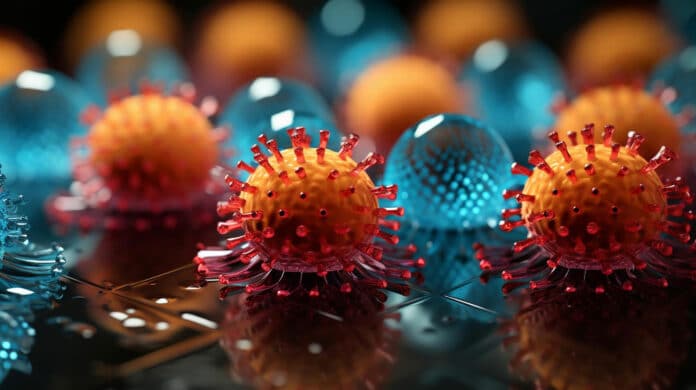People’s immune responses to different variants of the COVID-19 virus, SARS-CoV-2, depend on their past exposures. This new research from the University of Cambridge shows that understanding these differences can help improve future vaccines.
The study found that people react differently to mutations in new SARS-CoV-2 variants. The first version of the virus a person encounters affects how well their immune system can fight various parts of the virus and protect against other variants.
This means that the same COVID-19 vaccine might affect different people differently. It depends on which variants of SARS-CoV-2 they were exposed to previously and where their immune response has focused.
This finding highlights the need to monitor new virus variants and understand how people’s immunity to SARS-CoV-2 varies.
They consider both the virus variant and how people’s immune responses may differ for future vaccines.
Dr Samuel Wilks at the University of Cambridge’s Centre for Pathogen Evolution in the Department of Zoology, the first author of the report, said, “It was a surprise how much of a difference we saw in the focus of immune responses of different people to SARS-CoV-2. Their immune responses appear to target different specific regions of the virus, depending on which variant their body had encountered first.”
He added: “Our results mean that if the virus mutates in a specific region, some people’s immune system will not recognize the virus as well – so it could make them ill, while others may still have good protection against it.”
This study, published in Science, involved an extensive collaboration among ten research institutes, including the University of Cambridge. It gives us a broad picture of how people’s immunity to COVID-19 varies worldwide.
The researchers collected 207 blood samples from people who either had COVID-19 naturally from different virus variants or had received various doses of the Moderna vaccine. They looked at the immunity these people developed and discovered that the response varied depending on which virus variant they were initially exposed to.
“These findings help us understand how to make better COVID-19 booster vaccines in the future,” said Professor Derek Smith, Director of the University of Cambridge’s Centre for Pathogen Evolution.
The research used ‘antigenic cartography’ to compare different SARS-CoV-2 variants. It shows how well antibodies formed from one virus respond to another variant. This map helps identify which virus versions could escape the immune response, like what happened with Omicron, leading to infections even in vaccinated or previously infected individuals.
Immunity to COVID-19 can come from getting infected with the virus or getting vaccinated. Vaccines help your body recognize and fight the virus without getting sick. They teach your immune system to respond quickly if exposed to the virus. However, like other viruses, COVID-19 keeps changing (mutating) to avoid our immune system.
In the first year of the pandemic, the primary COVID-19 virus was called the B.1 variant. But then, new variants could cause reinfections even in people who had COVID before.
This study aimed to understand how people’s immunity works from their first encounter with the virus and how it varies among people. It was supported by funding from the National Institute of Allergy and Infectious Diseases and the National Institutes of Health.
Journal Reference:
- Wilks, S. H., Mühlemann, B., Shen, X. et al., Mapping SARS-CoV-2 antigenic relationships and serological responses. Science. DOI: adj0070.
